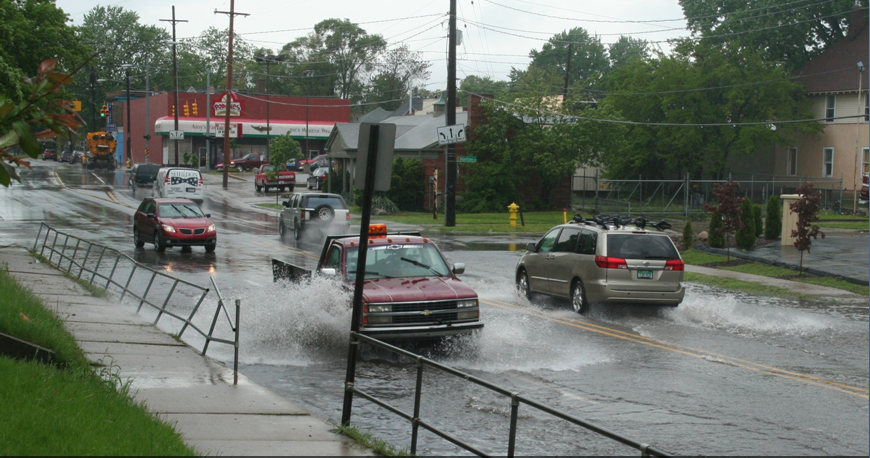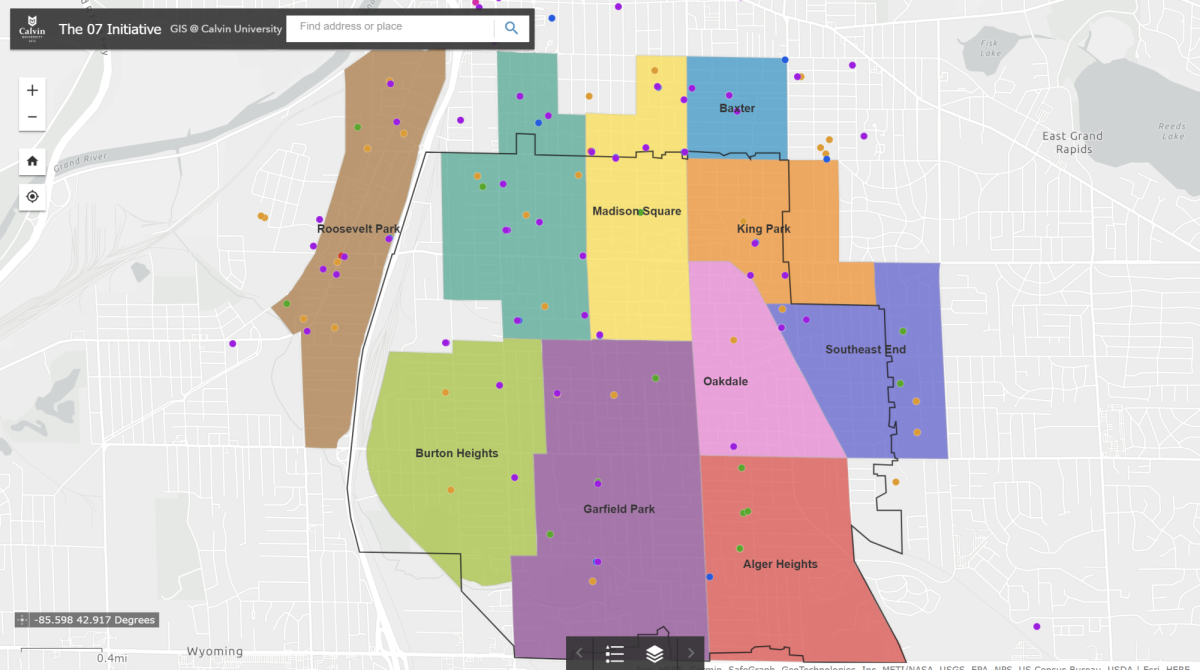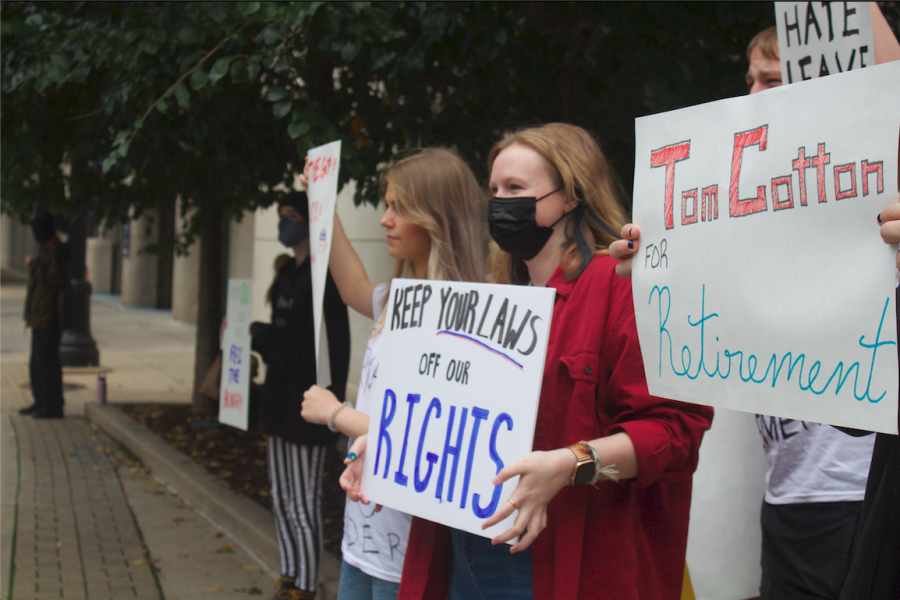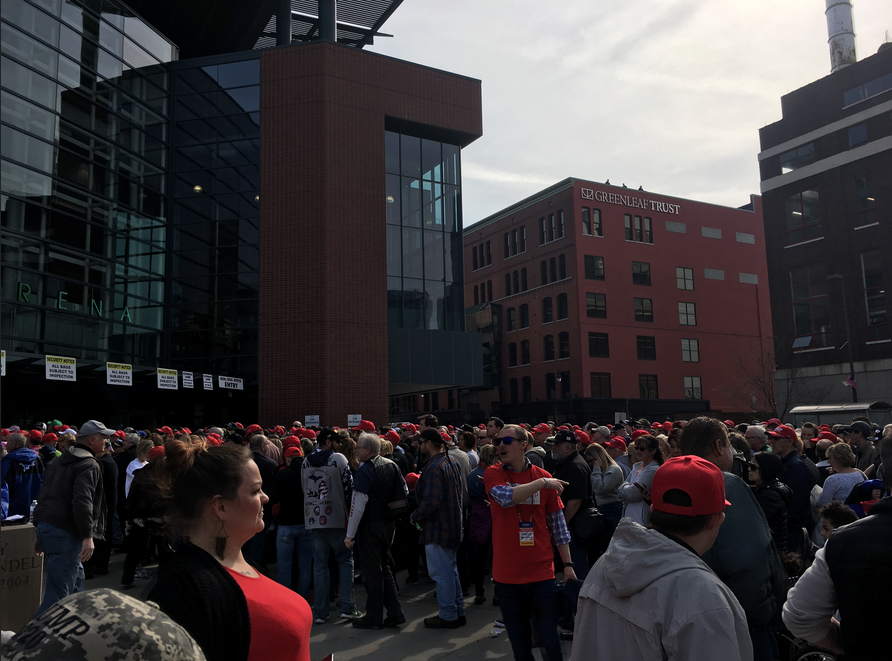Committed to changing the polluted reality of the local watershed, the Plaster Creek Stewards encouraged participants to rethink their understanding of rain during its educational and experiential Spring 2015 event, which occurred this past Saturday, April 18.
The gathering brought together a diverse group from the Grand Rapids population.
“It was definitely a multi-generational event, with high school [students] to older retired folks represented there. Students, members of our partner organizations and churches, members of the Calvin community, people who live along the creek and many others attend the event,” said Joel Betts, a member of the Plaster Creek Stewards.
People came together for a presentation at Calvin entitled “Fighting for the watershed in the absence of an enemy: Shifting the way we think about and respond to rain” before heading out into the community for a morning of action.
The presentation challenged the understanding of stewardship in which environmentalism is centered on battles to be won against businesses or industry that instituted environmentally harmful practices.
Instead, the presentation argued for a view of the restoration of Plaster Creek, “not as a battle, but as a paradigm shift that better values healthy interactions with our watershed,” said Plaster Creek Stewards.
A part of the most polluted watershed in Michigan because of its location near the urban center of Grand Rapids, Plaster Creek often experiences low water quality after heavy rain.
Pollutants and unsafe substances often end up in the main water supply because the water rushes to the river from straight off parking lots and other polluted surfaces.
Plaster Creek Stewards instigated an initiative to filter some of the runoff water by creating curb-cuts into the sides of roads in the Grand Rapids area.
Curb-cuts are depressions about a foot long located near storm sewers that are surrounded by native plants with deep roots that are able to absorb some of the stormwater’s force and pollutants.
The presentation showcased the Alger Heights Neighborhood’s curb-cut rain garden program, intended to decrease the level of pollution in the river.
Sophomore Allie Klink, a sustainability coordinator, acknowledged the importance of education in understanding one’s local watershed:
“We tend to see rain as a bad thing right now since it pollutes our rivers and streams,” she said. “It got me thinking about what it would take to help us see rain as a good thing again.”
The combination of lecture and community service opportunity enabled participants to gain deeper understanding of the reality of Plaster Creek.
“These events are unique in that they connect concepts and ideology from the lecture with hands on restoration work. I think this is especially powerful,” Betts said.
Looking forward, the Stewards hope for continuing growth in awareness and community initiative in regard to Plaster Creek. “I am very hopeful that well-attended events like this will have ripple effects to promote better watershed stewardship in our communities,” said Betts.
Klink expressed similar sentiments. “What’s great about Plaster Creek Stewards is that anyone can get involved,” she said. “It’s a massive project that will improve the quality of Plaster Creek and, by extension, the Grand River, the Great Lakes and even the Atlantic Ocean.”









